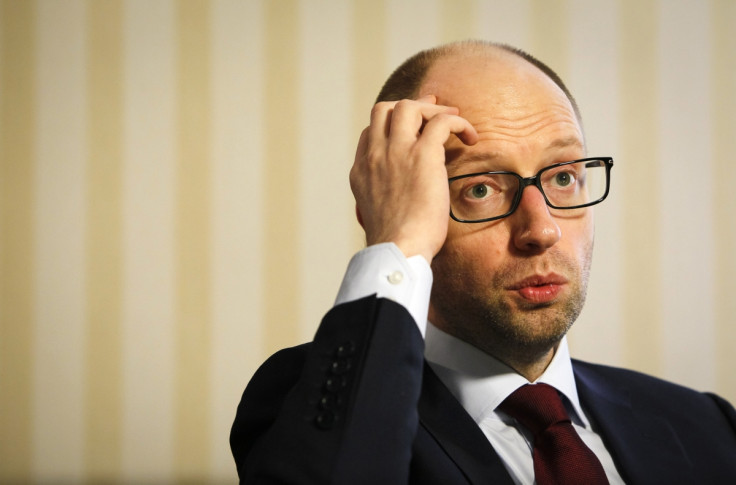Ukraine Eyes Bypassing Russia for Emergency Gas Needs

Ukraine's interim Prime Minister Asreniy Yatseniuk has revealed that the country has opened emergency talks with European partners about the possibility of importing natural gas to bypass the Russians.
Ukraine's gas crisis has escalated this week as its Russian supplier Gazprom hiked the price it charges Kiev twice in the matter of days in what the PM dubbed "political prices."
"We are carrying out emergency talks with our European partners. One way to solve the problem is reverse gas from EU countries," said Yatseniuk. He told reporters that Kiev was exploring the possibility of importing from Slovakia, Hungary and Poland.
"On a technical level, the idea of reverse gas raises no problems and we hope our European partners make the right decision. If it will be to reverse (gas), then it means the price for gas will be $150 lower than Russian gas.
Russian energy giant Gazprom raised the price it charges Kiev for gas to $485 per 1,000 cubic metres on Thursday. It was the second rise in a week, after Russia had initially upped Ukraine's price 44% on Tuesday to $385.5 per 1000 cubic metres.
Speaking to Reuters, Yatseniuk said the price rises are political.
"There is no reason why Russia would raise the gas price for Ukraine ... other than one - politics. We expect Russia to go further in terms of pressure on the gas front, including limiting gas supplies to Ukraine."
He added that the subtext to Russia's move was a message to Russian speaking Ukrainians that they would be better off in Russia, rather than in austerity-laden Ukraine.
"They're saying: if you go to Russia, you'll be happy, smiling, and not living in a Western hell," he said.
"They (the Russians) are trying to compensate (for the Western sanctions). But we can pay the price of independence," he said, with financial support from the West.
The price hikes are the latest in an ongoing conflict that has drawn in Kiev, Moscow, Washington and Brussels.
Tensions remain high in Ukraine following Russia's annexation of the Crimea peninsula. The region voted to be integrated with Russia in a referendum called "illegal" by Western leaders and rejected by the United Nations General Assembly.
The US and EU reacted to the vote by imposing a raft of sanctions against individuals with close ties to the Kremlin, as well as a Russian bank.
Moreover, Russia has a history of using energy in geopolitical spats and European customers remain concerned that Moscow could restrict supply if the crisis continues.
While the possibility of a military escalation has eased this week, as some Russian troops pulled back from the Ukraine border, thousands still remain massed on the border.
© Copyright IBTimes 2025. All rights reserved.






















